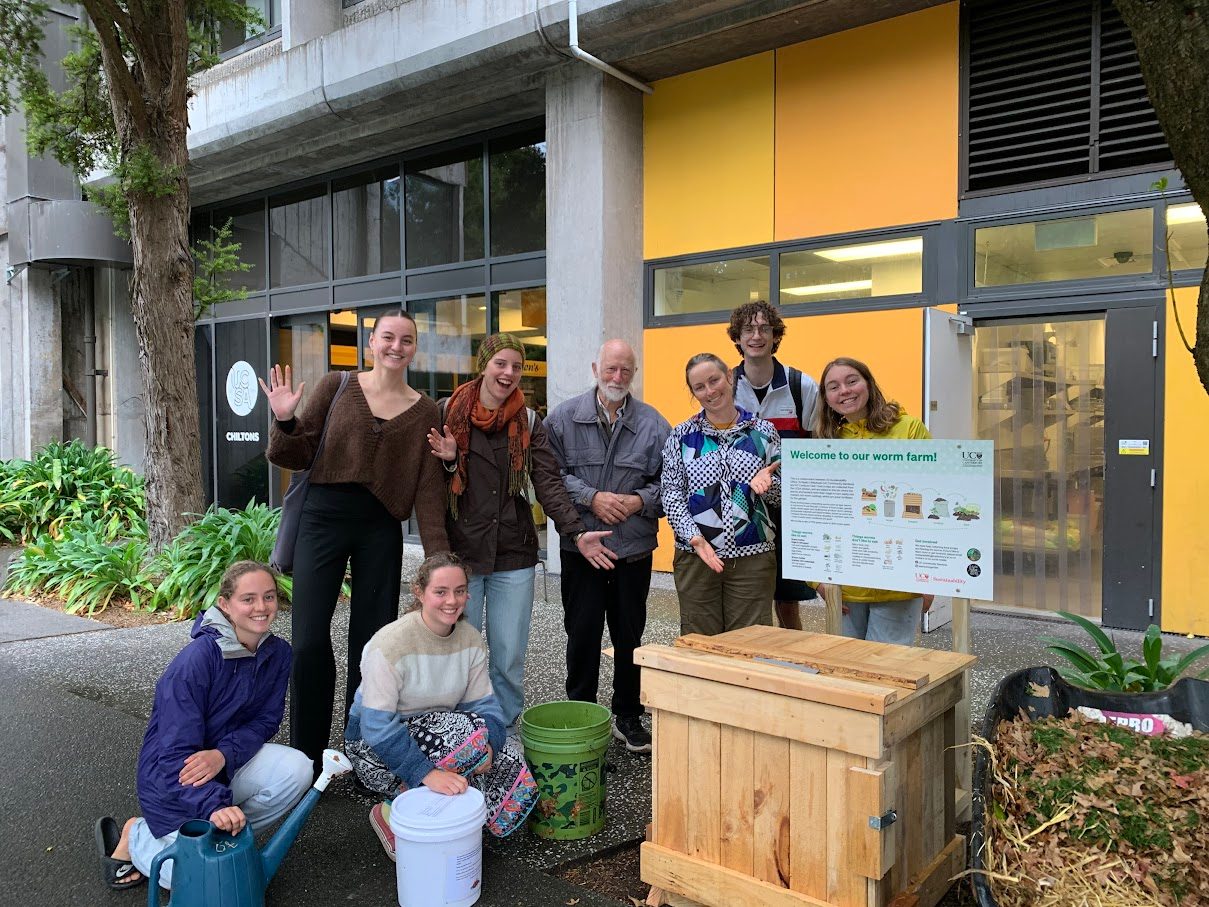What can be composted at UC?
Turning food scraps and organic waste into compost significantly reduces the volume of waste sent to landfill, making it an important waste minimisation tool. Compost can then be used by gardeners to improve soil fertility and structure. Food and organic waste generated at UC is taken offsite and made into compost. You can put all food scraps and organic material in the green wheelie organics bins and small bench top containers in staff kitchens. This includes:
- Fruit and peels
- Sandwiches
- Cakes
- Meat
- Coffee grounds
- Flowers
- Any other plant material
- All food waste (both raw and cooked)
- No pizza boxes
- No tea bags
- No takeaway food/drink packaging, even if marked "compostable" or "bioplastic"
- No cardboard or paper

